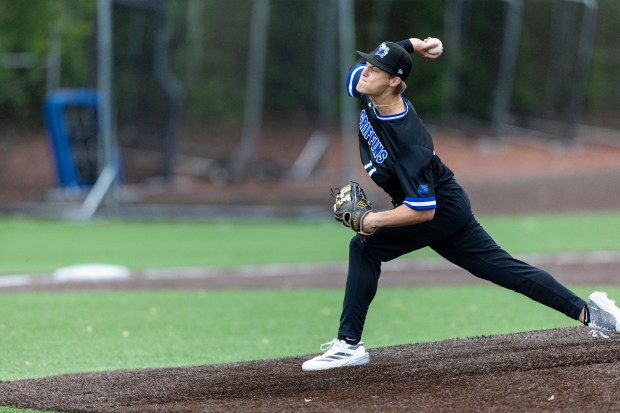The faculty at Valparaiso University are voting on a resolution of no confidence in President José Padilla after the Faculty Senate approved the resolution earlier this week.
The resolution, provided by a source to the Post-Tribune, notes six areas in which the Faculty Senate said that Padilla has failed the university, including not fulfilling primary responsibilities for fundraising, and not improving student enrollment and retention.
The Faculty Senate vote, taken Wednesday, was 15 in favor of the resolution, two against and one abstention, according to the source. The full faculty has until Saturday morning to vote on the resolution in advance of a Board of Directors meeting this weekend.
Faculty Senate President Bharath Ganesh Babu declined to comment.
“We are disappointed that the Faculty Senate feels it is appropriate to take this step, without input or feedback from the faculty at large, prior to their vote on this matter,” university spokesperson Michael Fenton said in a statement provided to the Post-Tribune. “However, we remain hopeful that all members of the University community can continue to unite in pursuit of our shared goals.”
According to the Faculty Senate resolution, “Padilla’s approach to rectifying our financial deficits has driven our budget increasingly away from our core mission of educating students, reducing the percentage spent on academics to 38%, increasingly below our peers.”
Padilla received widespread criticism for plans to sell three key paintings from the Brauer Museum of Art to raise funds to renovate dorms for first-year students. The sale of the paintings, worth millions of dollars, is slated to go forward after a court ruling in the university’s favor that the trust that provided the funds for the artwork could be amended to allow the sale.
The resolution also notes that Padilla “has not demonstrated the ability to recruit and effectively lead senior administrators, as evidenced by, among other issues, significant turnover in key leadership positions”; his leadership style “has fostered discontent and a deep sense of insecurity amongst the constituents of the University”; and Padilla, “from the earliest days of his tenure, has taken a contentious approach with the faculty, staff, and the broader community, eroding the University’s reputation and fundamental mission.”
The university’s student population has continued to drop, despite recent partnerships with community colleges here and in Chicago.
The fall and new student headcount have both dropped in the past two years after numbers began to climb slightly in 2022, as the direct impact of the brunt of the COVID-19 pandemic began to wane. Still, according to enrollment figures on the university’s website, both numbers are below where they were in the fall of 2019 before the pandemic began.
The university had 852 new students in August, compared to 1,004 five years ago. Likewise, this year’s total fall headcount was 2,598 students, compared to 3,521 in fall 2019. Only 16 students from the latter count were in the university’s law school, its last cohort before it closed.
The university announced Padilla as its president on Dec. 2, 2020, according to his biography on the university’s website. He previously served as vice president, university counsel and secretary of the University of Colorado System. Before that, he served 15 years in senior leadership roles at DePaul University in Chicago, the most recent as vice president, general counsel, and secretary.
alavalley@chicagotribune.com



